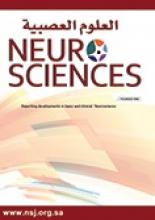1 August 2023 - Geneva/New York - In the last 10 years, many countries have made significant progress to increase exclusive breastfeeding rates. Yet even greater progress is possible when breastfeeding is protected and supported, particularly in the workplace.
This World Breastfeeding Week, under its theme, “Let’s make breastfeeding at work, work” - UNICEF and WHO are emphasizing the need for greater breastfeeding support across all workplaces to sustain and improve progress on breastfeeding rates globally.
In the last decade, the prevalence of exclusive breastfeeding has increased by a remarkable 10 percentage points, to 48 per cent globally. Countries as diverse as Cote d’Ivoire, Marshall Islands, the Philippines, Somalia and Viet Nam have achieved large increases in breastfeeding rates, showing that progress is possible when breastfeeding is protected, promoted, and supported.
However, to reach the global 2030 target of 70 percent, the barriers women and families face to achieve their breastfeeding goals must be addressed.
Supportive workplaces are key. Evidence shows that while breastfeeding rates drop significantly for women when they return to work, that negative impact can be reversed when workplaces facilitate mothers to continue to breastfeed their babies.
Family-friendly workplace policies - such as paid maternity leave, breastfeeding breaks, and a room where mothers can breastfeed or express milk - create an environment that benefits not only working women and their families but also employers. These polices generate economic returns by reducing maternity-related absenteeism, increasing the retention of female workers, and reducing the costs of hiring and training new staff.
From the earliest moments of a child’s life, breastfeeding is the ultimate child survival and development intervention. Breastfeeding protects babies from common infectious diseases and boosts children’s immune systems, providing the key nutrients children need to grow and develop to their full potential. Babies who are not breastfed are 14 times more likely to die before they reach their first birthday than babies who are exclusively breastfed.
Supporting breastfeeding in the workplace is good for mothers, babies, and businesses, and that is why UNICEF and WHO are calling on governments, donors, civil society, and the private sector to step up efforts to:
• ensure a supportive breastfeeding environment for all working mothers - including those in the informal sector or on temporary contracts - by having access to regular breastfeeding breaks and facilities that enable mothers to continue breastfeeding their children once they return to work.
• Provide sufficient paid leave to all working parents and caregivers to meet the needs of their young children. This includes paid maternity leave for a minimum of 18 weeks, preferably for a period of six months or more after birth.
• Increase investments in breastfeeding support policies and programmes in all settings, including a national policy and programme that regulates and promotes public and private sector support to breastfeeding women in the workplace.
- Copyright: © Neurosciences
Neurosciences is an Open Access journal and articles published are distributed under the terms of the Creative Commons Attribution-NonCommercial License (CC BY-NC). Readers may copy, distribute, and display the work for non-commercial purposes with the proper citation of the original work.






